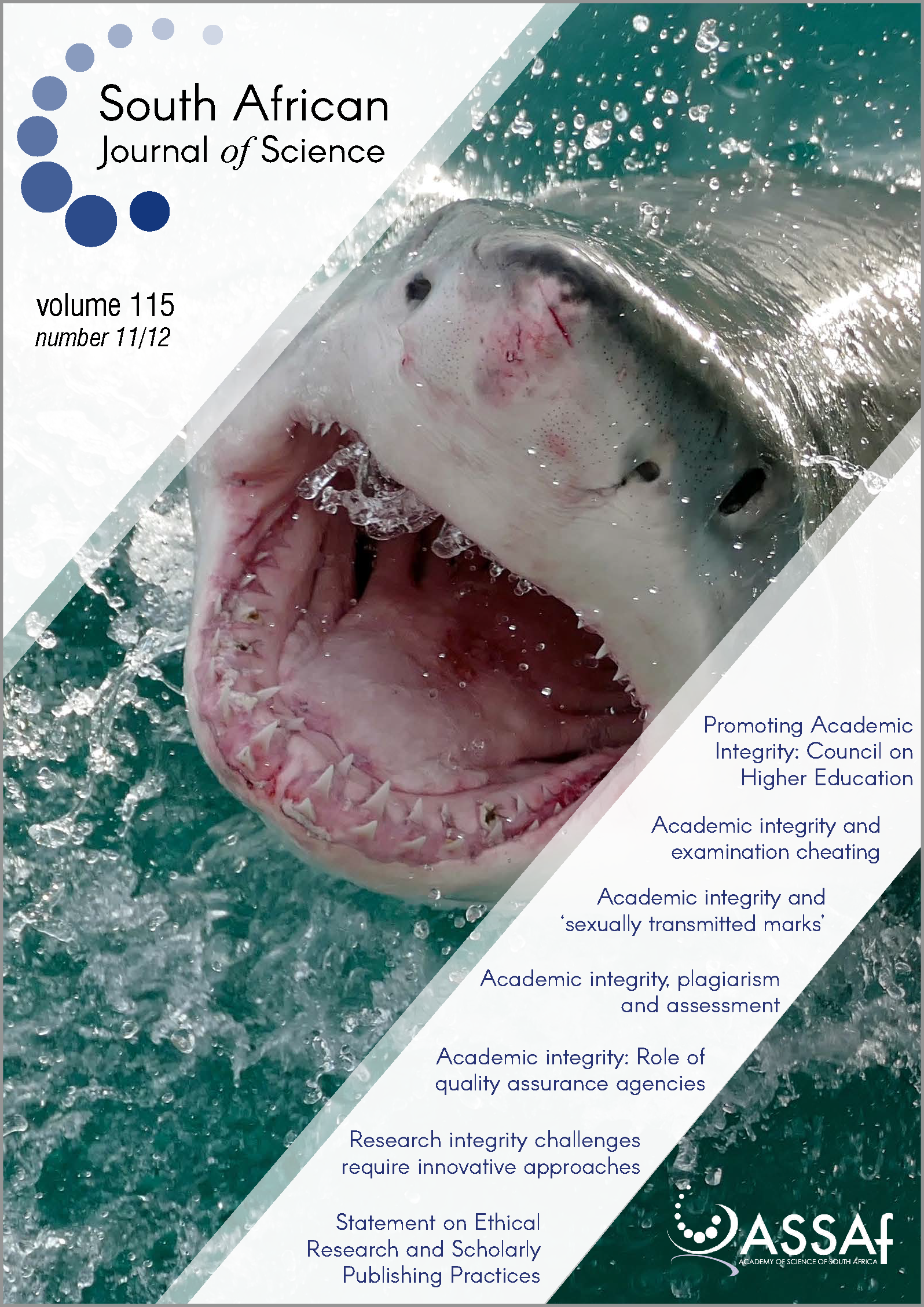Assessment, plagiarism and its effect on academic integrity: Experiences of academics at a university in South Africa
DOI:
https://doi.org/10.17159/sajs.2019/6323Keywords:
large class teaching, massification, student plagiarism, TurnitinAbstract
The quality of teaching, learning and assessment is compromised by the growing problem of academic dishonesty, especially in large class sizes as a result of the ‘massification’ of education. In South Africa and around the world, student plagiarism and cheating has become a matter of concern, especially when it comes to teaching large classes. This concern has received much attention as it impacts negatively on the maintenance of academic standards and integrity at many universities. Academics have a major role to play in the process of maintaining academic integrity. Through an ‘interpretivist’ and qualitative approach, we explored the experiences of three emerging academics within the Discipline of Curriculum Studies at a university in South Africa. We used Pinar’s method of currere as a lens that focuses on academics’ experiences of assessment and plagiarism in teaching large classes and its effect on academic integrity. The findings suggest that although ‘massification’ of education in South Africa is commended for addressing past social injustices and for facilitating accessibility to education, quality teaching and learning including assessment is seriously compromised. This demands a serious rethink of assessment strategies to deter academic dishonesty, and a reconsideration of the way academics and institutions think about plagiarism detection tools in teaching large classes.
Significance:
- Understanding academics’ experiences of assessment and addressing the growing problem of plagiarism can contribute significantly to efforts towards improving teaching and assessment practices in large classes, and to upholding academic honesty within higher education institutions in South Africa.
- A rethink of effective assessment strategies is needed to provide a worthwhile quality educational experience. In the context of this study, ethics within the teacher education curriculum should be prioritised.
Downloads
Published
Issue
Section
License

All articles are published under a Creative Commons Attribution 4.0 International Licence
Copyright is retained by the authors. Readers are welcome to reproduce, share and adapt the content without permission provided the source is attributed.
Disclaimer: The publisher and editors accept no responsibility for statements made by the authors
How to Cite
- Abstract 5585
- PDF 3328
- EPUB 243
- XML 424
- Supplementary Material 283












.png)